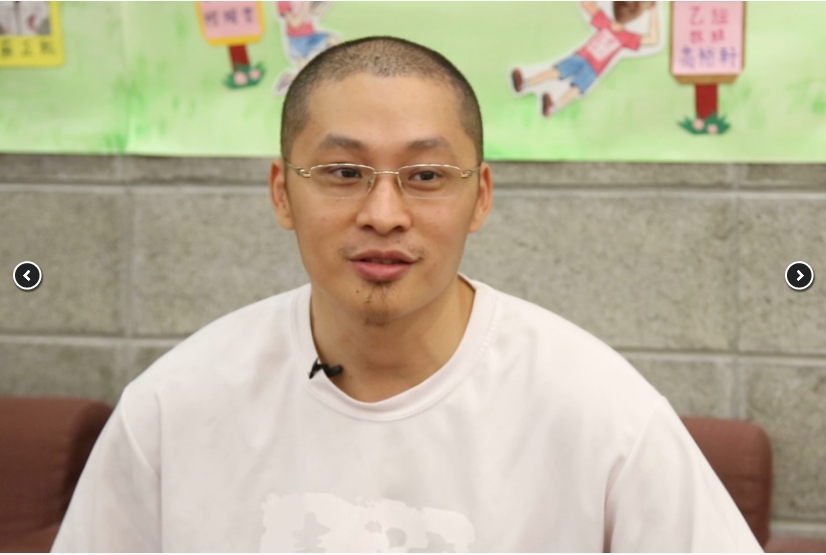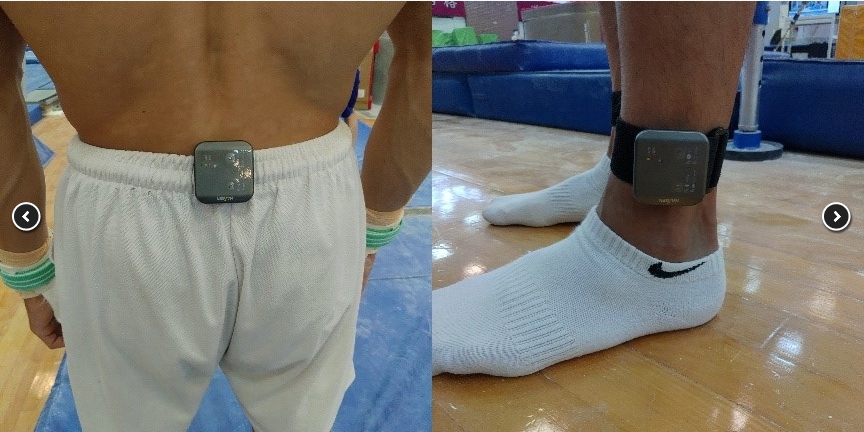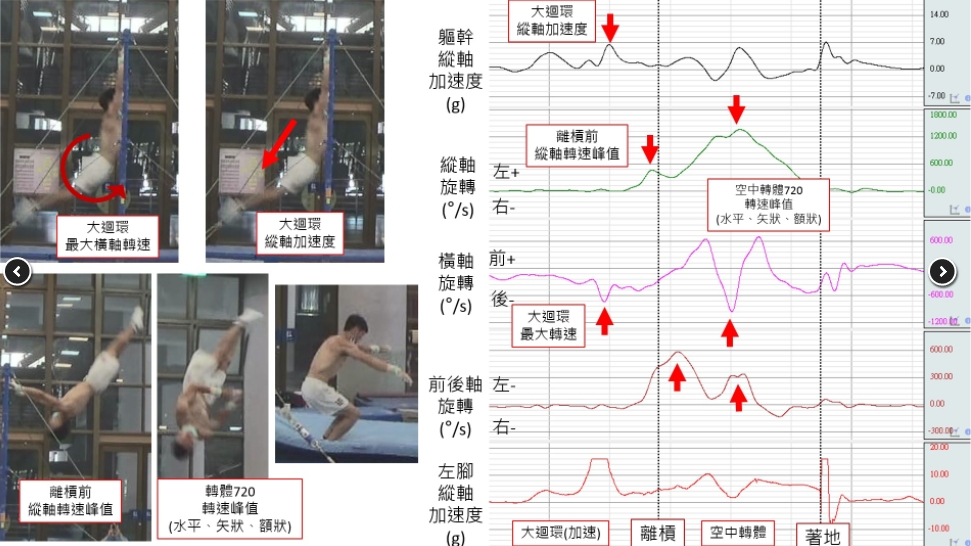Original Source: NTNU Public Affairs Office (2021.07.21)
Taiwan’s gymnastics program has become increasingly complete, and is expected to set new records at the Tokyo Olympics this year. NTNU graduate student in competitive sports, Tang Chia-Hung, has demonstrated international prowess on the horizontal bar in recent years, winning multiple awards.
However, years of gymnastics training have led to numerous injuries, with Tang undergoing surgery four times in the past. Although his rehabilitation journey was full of setbacks, he has persevered with unwavering passion to reach where he is today.
Throughout the journey, his mentor Weng Shih-Hang has undoubtedly been the key force behind Tang’s recovery and return to peak performance in gymnastics.
Weng Shih-Hang believes that Tang is highly talented and dedicated to pursuing his dreams, and that NTNU’s consistent emphasis on tailored training has played a significant role. “If we didn’t provide customized training for each athlete, it would be impossible to achieve such results.”
Doctor-Coach: Emphasizing Both Theory and Practice
Weng started as an athlete and later transitioned into a coaching role. He is currently an assistant professor in NTNU’s Department of Athletic Performance. He holds a Ph.D. in Sports Science and specializes in sports analysis and strength training. This makes him highly knowledgeable about the physical condition of athletes. Now, more than ten NTNU gymnasts are coached solely by him.
Under Coach Weng’s leadership, the NTNU gymnastics team has developed a close, family-like bond. At NTNU, gymnasts learn that gymnastics involves more than just skills and training—Fields like sports injury prevention, nutrition, sports psychology, and technology are equally essential.
Knowing when to focus on physical conditioning, mental training, or technical improvement——each training stage has its own objectives. Scientific training is the key to injury prevention.
NTNU Athletes: Technical Skills and Moral Integrity Alike
Weng Shih-Hang, who helped Tang Chia-Hung recover and regain form, understands Tang’s challenges deeply, having once been an athlete himself. He has since become one of Tang’s most trusted figures.
After the 2017 Taipei Universiade, under Coach Weng’s assessment, Tang returned to NTNU for training, initiating a focused plan for healing and preparing for the Asian Games. This led to his gold medals in the horizontal bar at the 2018 Asian Games and 2019 Universiade, earning him the title “World Pommel King.”
Tang shared: “What coach teaches is not just technical skills, but also how to behave oneself and character education. Even if I have academic questions, I can go to him.”
NTNU’s strong tradition emphasizes etiquette—anyone observing the gymnastics team practice can feel this spirit. All students remove their shoes and bow as soon as they enter the gym. Throughout training, athletes are taught to maintain an attitude of gratitude. Whenever the coach offers guidance, they respond loudly with “Thank you, coach!”
Boosted by Sports Science: Precision Analysis
In the final lead-up to the Olympics, to further refine Tang’s horizontal bar technique, and to prevent re-injury, Coach Weng collaborated with NTNU professor Tzyy-Yuang Shiang from the Department of Athletic Performance, (who is also the chief coordinator of sports science for Taiwan’s national Olympic training center), aiming to use scientific methods to analyze Tang’s technical movements and forces during dismount, aerial twists, and landings.
The research team used inertial sensors to collect data on acceleration and angular velocity from Tang’s waist and feet, combined with video analysis. They evaluated the centrifugal force on his arms before dismount, the aerial twisting technique post-dismount, and his landing technique and impact force. They identified key factors affecting perfect landings and offered training recommendations. With precise sports science analysis, they aim to push Tang’s performance beyond its peak, support Tang in achieving new milestones, and wish him an outstanding performance at the Tokyo Olympics.
Source: Department of Athletic Performance / Edited by Huang Le-Hsien / Reviewed by Hu Shih-Tse (English Version Powered by ChatGPT, Edited by Serena H.)

翁士航是從選手出身,轉型成教練,目前是臺師大運動競技學系助理教授,具有運動科學博士學位、鑽研運動分析及肌力訓練。
(圖片來源:翊起運動Vamos Sports)

研究團隊將慣性感測器固定在唐嘉鴻腰部及腳踝上方,藉此量測與分析動作技術與受力。

藉由精準的運動科學分析,進一步找出影響能否完美落地的關鍵因素,並提供訓練建議。